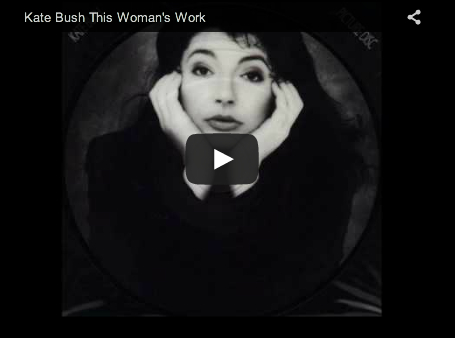the destroyer > cheap papers > Drew Krewer
ELEGY FOR K, THE ORIGINAL SOUTHERN RIOT GRRRL

It is impossible to know where on the spectrum between intentional and unintentional her passing might have fallen.
It was on Mother’s Day in the late 90s. I had finished dance practice near Atlanta and my grandfather and I were making the three and a half hour drive home to rural southwest Georgia. During those drives, I subjected him mainly to female alt rock—Tori Amos, Fiona Apple, Natalie Merchant. It was the early days of the publicly accessible Internet, and I had made a friend in a Tori Amos chatroom who had made me a mix CD, which contained my first encounter with Kate Bush—“This Woman’s Work.”
On the way home that day, the disk jockey on the alt rock station in Atlanta made a dedication to all the mothers listening. It sounded about as genuine a dedication as one can expect from someone whose career is defined by the vocalities of charisma. As the announcer’s voice cut away, the delicate piano and reverent sprightly howls of Kate Bush emerged through the speakers in the truck; coming from southwest Georgia, to hear the song—over the radio—that first defined Kate Bush to your ears is a foreign, validating, and vaguely emotional experience. On that long, monotonous drive home, the song almost seemed ceremonial.
Later, while eating dinner, a friend phoned to tell me that K had died in a car accident. She was apparently flying down a dirt road, and the wheels of her SUV dug into the earth and flipped her into the ditch. She was not in pain; the wreckage proved a swift end to things.

Last month, while I was home for the Holidays, I came across the obituary I had cut out of the local newspaper years ago. It shows K, with her overly-hair-gel-ed hair, a metal bead Hot Topic necklace, a men’s tank top, and a Hawaiian shirt, all framed by the airy, cloud-like fabric of our high school photography vendor's default backdrop.
A few days ago, back in Houston, I watched the cult documentary Dirty Girls (Michael Lucid, 2000) for the first time. What struck me was how these thirteen-year-old girls had an eerily similar fashion sense to K and similar outspoken attitudes toward sexism, racism, and homophobia. It became clear to me, for the first time, that K was truly the Southern version of the riot grrrl. I had never heard her bring up the movement, and in the days of late 90s nascent search algorithms, one would not expect her to have a wealth of information about the movement at her fingertips. I like to think she was tapping into a movement that was blossoming far away from the rural South––that she was prophetic.
I could have been a better friend to K. Being a target of bullying myself, I tried to distance myself from others who experienced similar levels of public humiliation; instead of embracing my weirdness like K, I struggled toward normalcy but lacked the commitment to change myself for public consumption. I ended up boring. K stood out; she was bright, magical, and unavoidable.
K, like most of us in the sticks, grew up in an extremely Christian household. In late 1997/early 1998, I started to heavily question the religion into which I was born. I was able to discuss these attitudes openly with K, and we’d go to events, like the international students' dinner at the local agricultural college, and talk about life. Many (but not all, of course) of the teens in my high school were xenophobic, and K really embraced multiculturalism. She would often talk publicly about new boyfriends, and many of her boyfriends were of other ethnicities. She would take down people for cracking racist jokes, even though in rural Georgia her activism and attitude was met with far grosser retaliation than one might imagine one of the girls from Dirty Girls might have experienced.
For a while, K proclaimed she was Wiccan, bringing to school pouches with herbs and stones and pentagrams. I’m not sure to what extent our discussions about religion influenced this behavior, or if she had come to witchcraft in a more solitary manner. Even with all this witchery, she would still talk about Christian music events that she was attending from time to time, saying that she liked the music and that she had a lot of friends who would be there.
At her funeral, the youth pastor did most of the talking. This event, which became more of a call to get right with God, was flanked with live, contemporary Christian rock music. The narrative this man constructed, for me, has forever called into question how K’s passing came to be, as well as who she was becoming as a young woman at the time.
The weekend prior to her death, K attended a Christian music event. At this event, she approached her youth pastor and asked to have a meeting with him in private that weekend. It was important and urgent and required off-hours consultation.
In this meeting, she told him of how she had gone astray, and that some of her current friends had played a role in allowing this to occur. She asked to recommit herself to the Lord, and that she knew it would be hard, but she would have to tell some of her best friends goodbye.
What strikes me about this conversation the most is not the obvious reference to both myself and a few other “heathen” friends, but the urgency and timing of it all. K was battling depression and teenage hormones; her home life was comfortable but existentially tormented. Adding all of that to daily bullying, it isn’t that far of a stretch to see her death as a gesture of self-harm. To have such a “getting right with God” moment almost exactly a week prior to one’s death seems extremely tidy and fits in with this potential reading of her death.
I could also easily see her getting in a fight with her mother on Mother’s Day and speeding off down an isolated dirt road, unaware of how the road’s poor conditions warranted careful attention.
Days after her death, I attempted hacking into her Hotmail account, as I knew she had many online friends that she exchanged email with on a regular basis. I didn’t want them thinking that she had forgotten about them. After inaccurately guessing the password multiple times, I decided to see if I could answer her safety question to open up the account. The question read
How many boyfriends have I had?
After hearing from her about all the different guys, to guess a number seemed much too difficult and a waste of time. Intuitively, however, I typed in “none.” Her entire email account opened itself up to me.
I sent off a few emails, explaining the situation, logged off, and never signed back into her account again.
During the funeral sermon, I was seated next to the other teenage pallbearers, one being her other close friend at our school. There were tears in his eyes, and he kept whispering to me that “K wouldn’t have wanted this service.” To someone taking K’s riot grrrl persona at face value, this statement would make perfect sense. But if one were to believe the pastor’s narrative of personal redemption, the service we witnessed was exactly what she wanted.
Having known at the time that her tales of boyfriends past and present were not at all true, I had swiftly made the conclusion that the service was probably up to her liking. That the personality of progressiveness and transgressiveness that she was so often known for was also false, which meant K, when it came down to it, was just another Southern Baptist girl.
Before running across her obituary over the Holidays, I don’t believe I had ever revisited the teenage conclusions I had drawn during the days and months following her passing. As an adult, I think the whole tragedy, her death and the subjective negotiation of her persona after it retired, was truly an early lesson for us all in accepting uncertainty.
Seeing the sincerity of the teens in the more private moments in Dirty Girls reminded me of how committed she truly was to the international students at the local community college; how she not only had a passion for learning about the cultures of others but also went out of her way to assist students in acclimating to the American Bible Belt. She was also a great friend to those of us who presented as LGBTQ, even if we didn’t identify that way at the time.
If someone had asked her, at the time, what kind of funeral service she would have liked, I believe K would have genuinely had a difficult time deciding. She was just beginning to negotiate her progressive nature with her religious upbringing, and based on her visit with the pastor, she was having difficulty with this process. Like most of us at that age, she was just beginning to understand who she wanted to become as a person.
K, we are constantly becoming.








